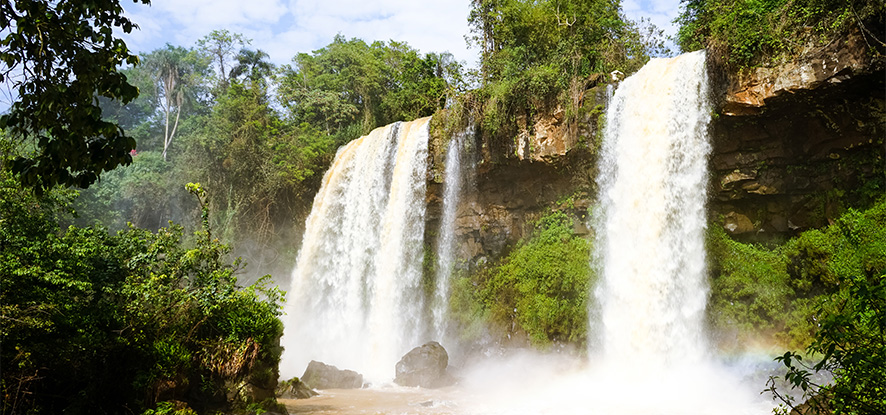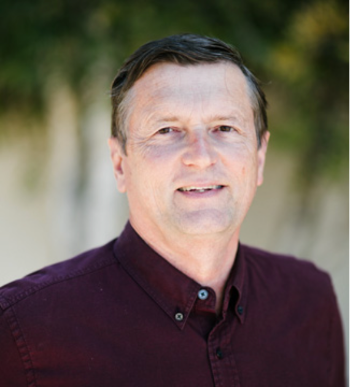Terra Argentina: Exploring Biology and Evolution in South America

Terra Argentina is a truly unique program in which students will learn about biology and evolution as they journey throughout Argentina's beautiful and varied natural landscapes. The three-week program will take students via land, sea, and air to learn about science in nature's classroom. Highlights include:
- Traveling to the Peninsula Valdes, a Patagonian nature reserve and World UNESCO Heritage site
- Seeing another UNESCO site, the stunning Iguazú Falls, at the border of Argentina and Brazil
- Canoeing through the wetlands in Esteros del Ibera, one of South American's most important ecological areas
- Seeing incredible wildlife throughout the trip, including sea lions, Magellenic Penguins, cormorants, and whales!
- Horseback riding on Peninsula Valdes among the wild guanacos of Patagonia.
Program Dates
May 10 - June 1, 2026
*Dates above indicate a planned departure date from the US and in-country return departure date.
Costs
Health & Safety
Visa Information
Course Requirements and Offerings
Refer to the academics page for details on the minimum unit requirements and class pre-requisites for the program. Textbook lists will be provided by the program staff.
Faculty Directors

Dr. Lee Kats
Professor of Biology
Dean of Seaver College
Frank R. Seaver Chair of Natural Science
Natural Science Division, Seaver College
Lee Kats has served Pepperdine for more than 30 years. He is currently the Dean of Seaver College, having a long history of service within the University’s administration. Kats was the vice provost from 2011 to 2023, and from 2001 until 2011 he served as the associate dean of research. As vice provost, he worked closely with Pepperdine's Information Technology Department; Office of Research, Grants, and Foundation Relations, and with the Office of Institutional Effectiveness. Kats also serves as academic director of the Center for Faith and the Common Good, and is involved in the University's strategic planning process and implementation.
Kats’ current research is focused on the ecology and conservation biology of stream animals. This includes examining possible causes of amphibian decline. He and his students focus their studies on the effects of ultraviolet radiation, wildfire, and the introduction of exotic species. He has a significant background in the areas of animal behavior, conservation, animal ecology, tropical biology, and stream ecology. Kats conducts most of his research in the Santa Monica Mountains of Southern California; however, he also leads classes and conducts research in Costa Rica and Argentina.
He has published numerous research articles on amphibian ecology and conservation ecology, served on the board of editors for the scientific journal Conservation Biology since 1996, and the editorial board of Hydrobiologia, the European scientific journal on freshwater biology, since 2000.

Dr. Edward J. Larson
University Professor
Hugh & Hazel Darling Chair in Law
Caruso School of Law
Ed Larson holds the Hugh and Hazel Darling Chair in Law and is University Professor of History at Pepperdine University. Originally from Ohio with a PhD in the history of science from the University of Wisconsin-Madison and law degree from Harvard, Larson has lectured on all seven continents and taught at Stanford Law School, University of Melbourne, Leiden University, and the University of Georgia, where he chaired the History Department. Prior to become a professor, Larson practiced law in Seattle and served as counsel for the US House of Representatives in Washington, DC. He received an honorary doctorate in humane letters from Ohio State University but still roots for the University of Wisconsin in football.
Recipient of the Pulitzer Prize in History and numerous other awards for writing and teaching, Larson is the author or co-author of fourteen books and over one hundred published articles. A popular lecturer, Larson has taught short courses at universities in China, Europe, and South America; and given addresses at over 80 American universities. A popular lecturer, Larson has taught short courses at universities in China, Europe, and South America; and given addresses at over 80 American universities.